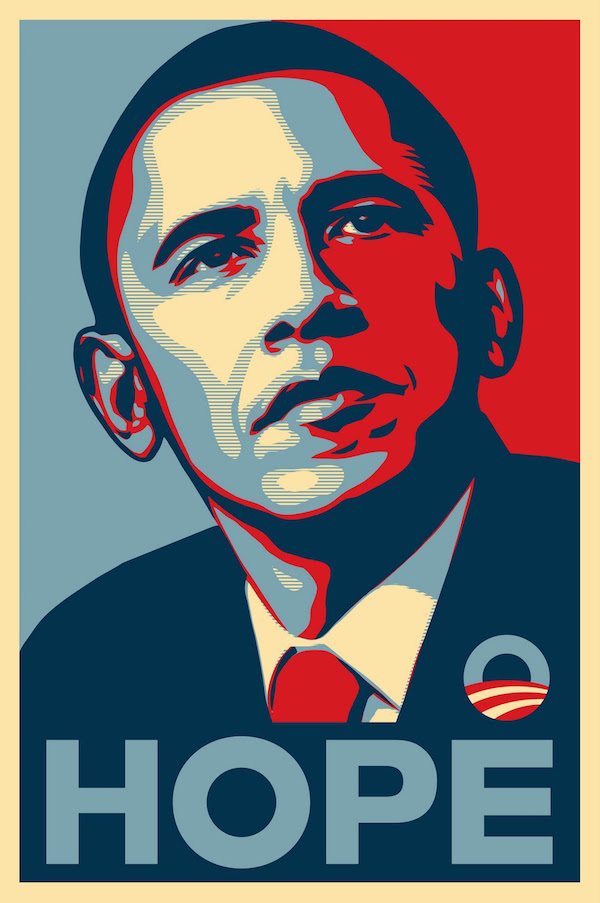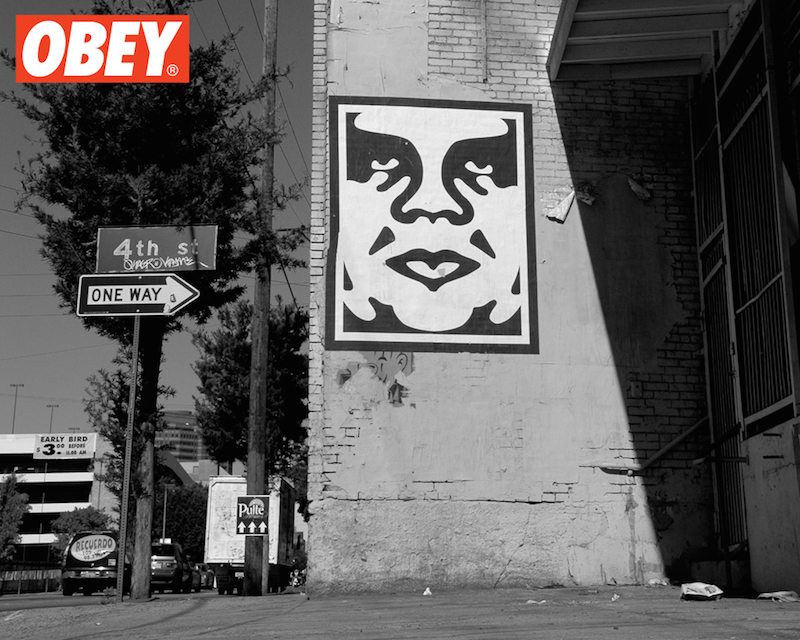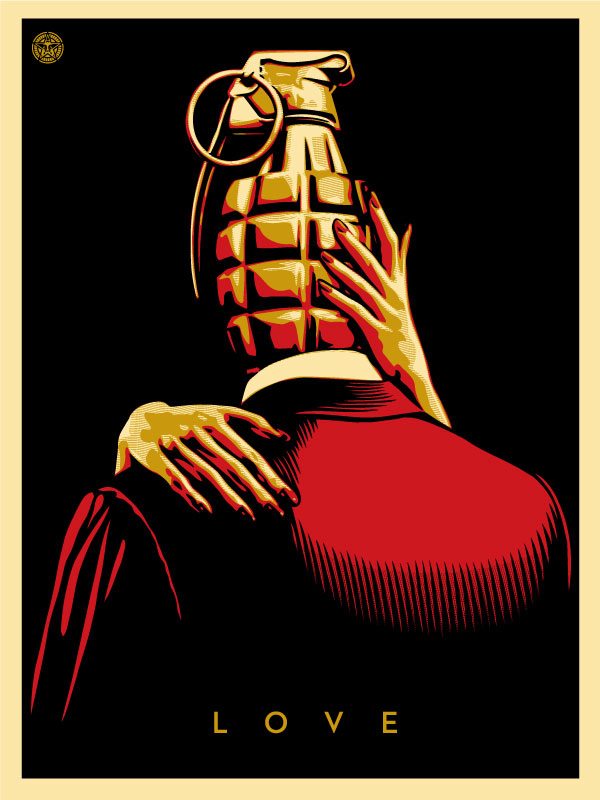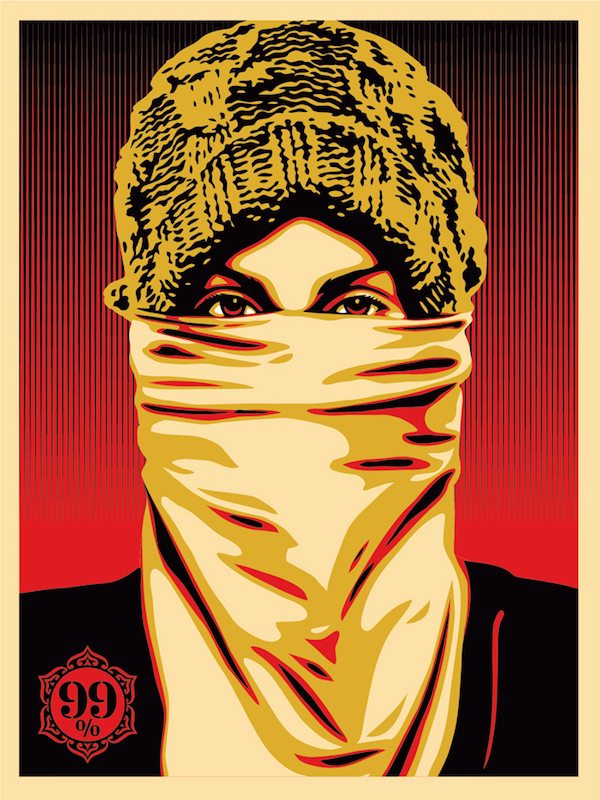Shepard Fairey
Episode #10 of the course “Ground-breaking contemporary artists”
Shepard Fairey is an American artist who emerged in the 1990s with a distinct “street” aesthetic. He is known for his unauthorized street graffiti projects, for which he has faced charges in multiple countries. Fairey is also a painter and an animator and has begun to explore film as a medium. He has designed numerous album covers for punk rock and metal bands, and he is perhaps most famously known for his “Hope” campaign poster, used in the 2008 presidential election of Barack Obama.
 Hope
Hope
 Andre the Giant
Andre the Giant
Fairey explores the blurred lines between high and low art with the belief that “the medium is the message” and that art belongs to everyone. His art and attitude are anti-authority and anti-establishment; he uses simplified lines and monochrome color palettes to bring focus to his subject matter—which often mixes violence and peace and explores the idea of a global community through re-envisioning recognizable images. Fairey explores ideas of power, oppression, revolution, and liberation with his many politically-oriented pieces, and he also evokes discussions of capitalism, consumerism, and American nostalgia.
Fairey was born in 1965 in Charleston, South Carolina, and studied at the Rhode Island Institute of Design. While at school, he plastered unauthorized posters around town with depictions of wrestler Andre the Giant. He also designed t-shirts and skateboard art and developed his style, encapsulating his motto of “question everything.”
 Love
Love
 Occupy Protester
Occupy Protester
The early Andre the Giant poster series of his college days morphed into his long-running and ongoing Obey series; these pieces often use a flattening effect on a pop culture image, recolored like Warhol’s pop art but with flat, grayed-down colors. Fairey has used Sex Pistol’s singer Johnny Rotten, the image of a gun, and the phrases “Peace” and “Justice” on different Obey posters. His latest work was a commissioned outdoor mural in New Jersey measuring nearly 150 feet by 50 feet.
Quotes
“I’ve never really considered myself just a street artist. I consider myself a populist.”
“People like to talk shit, but it’s usually to justify their own apathy.”
“Public art is ephemeral by nature. Google ‘s new project not only catalogs an artist’s work but archives it and allows people to see the art long after it has disappeared.”
“Propaganda has a negative connotation, which it partially deserves, but I think there is some propaganda that is very positive. I feel that if you can do something that gets people’s attention, then maybe they’ll go and find out more about the person.”
“I’ve never had an original thought in my life and there’s tons of people on the internet happy to tell me just that.”
All artworks
Recommended book
“OBEY: Supply & Demand” by Shepard Fairey
Share with friends

